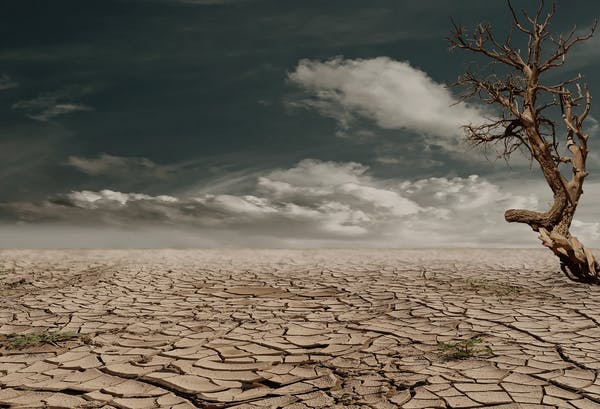Posted: 15 April 2022
"An atlas of human suffering"

On February 28th, 2022, the IPCC, the Intergovernmental Panel on Climate Change, a body under the auspices of the UN, released a report under the name "Climate Change 2022: Impacts, Adaptation, and Vulnerability." This new analysis is the second in a series of four studies all of which are part of the IPCC's Sixth Climate Change Report. The new study continues the first part published last August in Physical Climate Science, which had unequivocally confirmed the anthropogenic origin of the climate crisis. Instead, the analysis now focuses on the impacts caused by rising temperatures and interactions between natural ecosystems and human societies, providing an even more alarming summary of current and future risks than the previous versions.
A third new section of the report was just released on April 4th: the report analyses how greenhouse gas emissions are being reduced worldwide. And the final part, in October 2022, will summarize all previous analyses, thus becoming the scientific basis for COP 27, the United Nations climate summit to be held in Egypt this year. The IPCC reports are the most authoritative and reliable scientific sources on climate change. This report is based on the analysis and compilation of 34,000 international scientific articles and was written by 270 scientists from 67 different countries, commissioned and unanimously approved by 195 governments. The IPCC's Fifth Report, released in 2014, merely spoke of an increased likelihood of severe and irreversible damage from greenhouse gas emissions. Still, today experts believe that climate change has already caused much damage to the environment and human society.
This new study is a comprehensive assessment of the extent of climate change impacts and shows that we are already moving beyond the environment's ability to cope. At the Glasgow climate conference in November, countries renewed their commitment to limit global temperatures to 1.5-degrees. Yet, current policies on curbing emissions are not enough and could lead to a 2.7-degree increase in temperatures with consequences that the IPCC calls catastrophic and irreversible. The world has reached a higher temperature of +1.1 degrees from pre-industrial times, which is causing "cascading impacts that are increasingly difficult to manage" because the climate crisis also has the power to worsen problems such as hunger, disease, and poverty; especially in more vulnerable areas of the world. The report states that about half of the global population, between 3.3 and 3.6 billion people, live in the regions that are highly vulnerable to climate change and about one billion out of the total will live in coastal areas that are destined for a fatal ending due to steady sea rise by 2050. Regions such as West, Central, and East Africa, South Asia, Central, and South America, and many small island states will be affected.
Higher temperatures will cause the extinction of some species, floods, extreme events and droughts, and increased diseases such as cholera and fevers carried by mosquitoes. Soils will be infertile, dry, and without sufficient water for irrigation, reducing the pollination cycle, pests, crop diseases, and crop productivity will increase. Malnutrition and poverty, conflicts over resource use, migration and dependence of vulnerable countries on aid from the developed world will increase. The report predicts that 183 million more people will go hungry by 2050. "Unsustainable use of land and natural resources, land cover change, deforestation, biodiversity loss, pollution, and their interactions adversely affect the capacities of ecosystems, societies, communities, and individuals to adapt to climate change," the report states. Although they have contributed the least, the poorest countries will be the most affected; the adaptive capacity is, in fact, unevenly distributed among the regions of the world due to growing disparities between the cost of adaptation and available funding. There is also an entire chapter in the report devoted to impacts in the Mediterranean, which is defined as a highly vulnerable region and a "hotspot" for highly interconnected impacts.
Among the adaptation measures that the IPCC mentions in the report are the restoration of wetlands to protect against flooding, the greening of cities and reforestation, after which interventions are mentioned in different areas, including land and ocean systems, coasts, urban systems, and energy systems. United Nations Secretary-General António Guterres commented on the report with a phrase that will stick with us all: "atlas of human suffering and a damning indictment of failed climate leadership." That's why the UN secretary-general focuses on the importance of sudden investments to cope with a changing environment, where adaptation is measured in the speed of actions to prevent temperatures from reaching the critical threshold and in economic aid to vulnerable populations.
The IPCC report came out just four days after the Russian aggression in Ukraine as Europe began its struggle for energy independence from Russian gas. Guterres also said that current events have made it clear that the world dependence on fossil fuels "makes the global economy and energy security vulnerable." So, once again, there are calls to reduce emissions, disincentivize the use of fossils, and invest in renewable, clean, and independent energy.